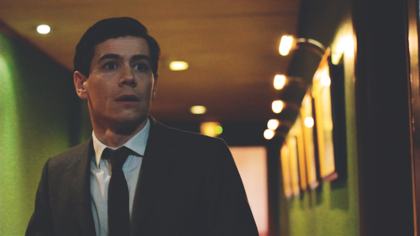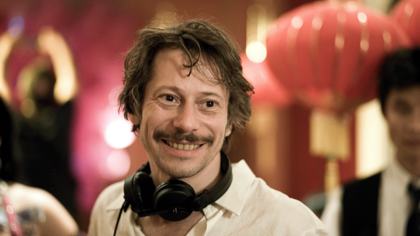Festivals
London Film Festival 2011: The S&S blog
Mystic Mathieu:
Amalric’s The Screen Illusion

Davina Quinlivan, 26 October
Mathieu Amalric delivers an arresting performance as violinist Nasser Ali in this year’s LFF premiere of Chicken with Plums (Poulet aux Prunes), Marjane Satrapi and Vincent Paronnaud’s follow-up to their acclaimed Persepolis. His fourth directorial endeavour The Screen Illusion, meanwhile, takes the shape of an adaptation of Pierre Corneille’s meta-theatrical seventeenth-century play L’illusion comique (The Theatrical Illusion).
Amalric’s On Tour (2010) traversed France through the eyes of a burlesque dance troupe, winning him the Best Director award at the 2010 Cannes Film Festival. The Screen Illusion features a different ensemble of performers, gathered from (and indeed commissioned by) Paris’s prestigious Comédie Française, aka La maison de Molière.
Corneille’s original play has desperate patriarch Pridament seeking out a magician to find his missing son Clindor, who is observed through the gauzy apparitions of a crystal ball. (Pridament is then repulsed by what he sees of his son’s pursuit of wealth and power, sex and love.) In Amalric’s film the action is transposed to the Hotel du Louvre, and the all-seeing eye is provided by a concierge with keys to the hotel’s subterranean CCTV surveillance room.
Michael Almereyda’s 2000 Hamlet had Ethan Hawke prowling late-night shops while reciting some of Shakespeare’s most enduring lines. Almaric’s enmeshing of the two art forms is more convincing; the play’s rousing soliloquies are convincingly and sensitively handled, while the use of surveillance imagery to reframe Corneille’s themes is more self-reflexive and cinematically assured – comparable to Andrea Arnold’s Red Road and its mise en abîme of multiple CCTV screens.

Mathieu Amalric
The screens and interfaces scattered throughout the film – surveillance equipment, mobile phones and computer monitors – not only update the play to the modern era but also emphasise correlations between the mysticism of crystal ball-gazing and the power we invest in the image, technologically produced or otherwise. When Predament ‘sees’ his son’s execution by rival businessmen on the roof of the hotel, the concierge’s prescient warning about the authenticity of the image and our potential for fatal misinterpretation – revealing another set of gleaned views that show Predament’s son to be alive – sums up Amalric’s fascination with the visual language of film and the screen’s reign over all.
Albert Serra: “I am the best one” »
See also
A love-hate relationship: Ginette Vincendeau on François Ozon’s Potiche and the traffic between French cinema and boulevard theatre (July 2011)
On Tour reviewed by Chris Darke (January 2011)
French exceptions: Jonathan Romney on idiosyncratic French riches from beyond the mainstream (May 2008)
Mean streets: Hannah McGill on Red Road (November 2006)
Late August, Early September reviewed by Chris Darke (September 1999)
